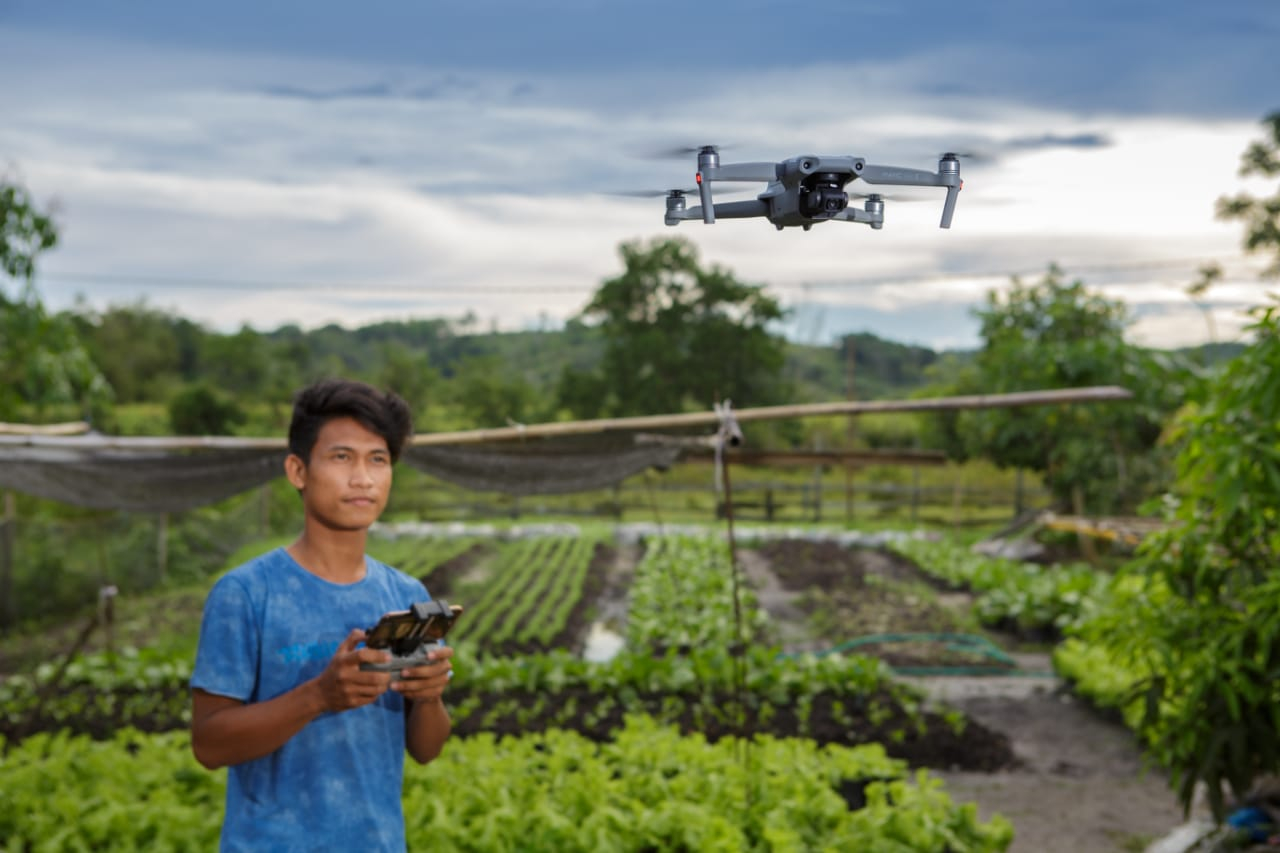28
Sep

JAKARTA - PT Pertamina Hulu Indonesia (PHI) carried out its corporate social responsibility (CSR) programs in Kalimantan work area as a form of social innovation. One of the program is "Petani Maju 4.0", the Youth Returns to Agriculture Program, at BSP Field managed by PT Pertamina Hulu Mahakam (PHM).
The program was triggered by many young and productive peope were unemployed around BSP Field. They are not interested in agriculture, and had limited skills.
"There were around 250 unemployed young people. We saw a potential in developing the agricultural (farming) sector by involving them,” said Dony Indrawan, the Communication, Relation and CID Manager of PHI, in the Sharing Session " Social Investment Strategy and Proper Achievement in the Upstream Oil and Gas Sector”, held by Energy & Editor Society (E2S), Friday (24/9).
Program Petani Maju 4.0 involves young and old farmers who collaborate in working on agriculture fields using drones, digital planting application, and pertaculture agriculture practices using Bio-Tasuke. Bio-Tasuke decomposter is made from organic waste, which means that this program is an integration of agriculture and technology.
The program is succesfully proven to solve the social problems in the area, specifically reducing the number of unemployed youths up to 13%, and environmental issue regarding processing and recycling organic waste into compost.
Dony Indrawan mentioned that innovation is the key for the future of Pertamina. “Mature field needs innovation and creativity to continue producing oil and gas. We are doing it effectively and efficiently. We also create an innovation in social investment which will provide continuous benefits,”he explained.
PHI also has other flagship programs such as Integrated Farming System Socially Innovated by Setaria Group (TANTE SISKA) managed by PT Pertamina EP Sangasanga Field and Black Soldier Fly Cultivation (BULATIH) managed by Pertamina Hulu Kalimantan Timur to achieve the Gold Proper Rating in 2021.
In the sharing session also present as speakers are Sigit Reliantoro, Acting Director General of Pollution and Environmental Damage Control (PPKL) of Ministry of Environment and Forestry; Krisdyatmiko, Head of the Social Development and Welfare Department of Gadjah Mada University’s Faculty of Social and Political Sciences; and Risna Resnawaty, a CSR Expert and Head of Social Welfare Program of Padjadjaran University’s Faculty of Social and Political Sciences.
According to Sigit, PROPER categorizes community empowerment activities into four typologies, namely charity programs at the lowest level, infrastructure development support, community capacity improvement, and at the highest level is community empowerment to become independent and dignified.
"PROPER has succeeded in encouraging participating companies to reduce the proportion of charity programs and implement more programs in the other typologies, i.e. capacity improvement, infrastructure development, and empowerment," he said.
Sigit also said that in 2020, innovation still become a trademark for PROPER, which are that innovation must be decreasing costs, reducing burdens, and creating more values.
"The criteria to achieve Gold Proper rating is the program must able to create social innovation, not only in terms of CSR but also proven to be measurable, efficiently satisfying people’s needs, and utilizing new ways of solving problems," said Sigit.
Krisdyatmiko said that PROPER is a good system oriented towards community empowerment and the company’s motivation in implementing CSR.
It is based on the identification of the company’s ideals in doing CSR because the company has the resources to be philanthropic, in the sense of giving to others. "So, it’s about how these resources are utilized, not only for the company’s benefit but also for the wider community," he said.
According to Risna, social innovation occurs when a company is committed to the surrounding communities. Social innovation is also related to any kind of changes occurring within and around the company.
"Social innovation in CSR is basically an effective response to satisfy community’s unmeet needs. Social innovation has a social purpose motivation. Social innovation is an activity or service that implement by the company, which is in line with social company's purpose, to fulfil social needs ," she said.